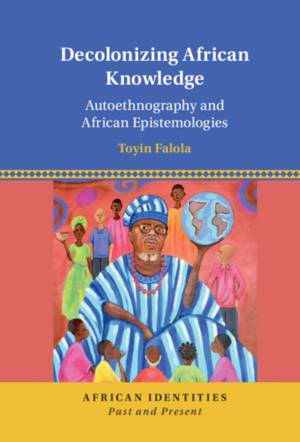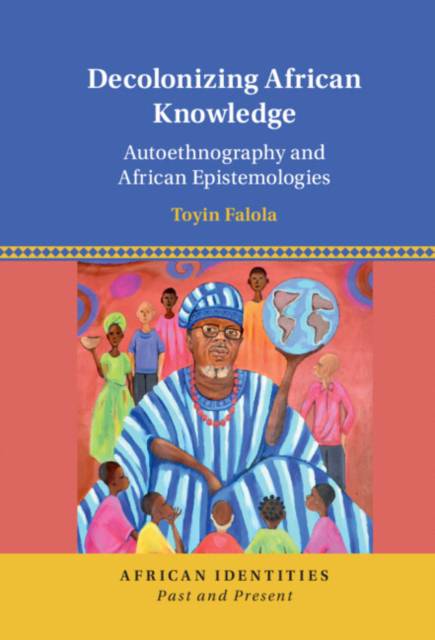
Je cadeautjes zeker op tijd in huis hebben voor de feestdagen? Kom langs in onze winkels en vind het perfecte geschenk!
- Afhalen na 1 uur in een winkel met voorraad
- Gratis thuislevering in België vanaf € 30
- Ruim aanbod met 7 miljoen producten
Je cadeautjes zeker op tijd in huis hebben voor de feestdagen? Kom langs in onze winkels en vind het perfecte geschenk!
- Afhalen na 1 uur in een winkel met voorraad
- Gratis thuislevering in België vanaf € 30
- Ruim aanbod met 7 miljoen producten
Zoeken
€ 60,95
+ 121 punten
Omschrijving
Addressing the consequences of European slavery, colonialism, and neo-colonialism on African history, knowledge and its institutions, this innovative book applies autoethnography to the understanding of African knowledge systems. Considering the 'Self' and Yoruba Being (the individual and the collective) in the context of the African decolonial project, Falola strips away Eurocentric influences and interruptions from African epistemology. Avoiding colonial archival sources, it grounds itself in alternative archives created by memory, spoken words, images and photographs to look at the themes of politics, culture, nation, ethnicity, satire, poetics, magic, myth, metaphor, sculpture, textiles, hair and gender. Vividly illustrated in colour, it uses diverse and novel methods to access an African way of knowing. Exploring the different ways that a society understands and presents itself, this book highlights convergence, enmeshing private and public data to provide a comprehensive understanding of society, public consciousness, and cultural identity.
Specificaties
Betrokkenen
- Auteur(s):
- Uitgeverij:
Inhoud
- Aantal bladzijden:
- 524
- Taal:
- Engels
- Reeks:
Eigenschappen
- Productcode (EAN):
- 9781316511237
- Verschijningsdatum:
- 14/07/2022
- Uitvoering:
- Hardcover
- Formaat:
- Genaaid
- Afmetingen:
- 158 mm x 230 mm
- Gewicht:
- 907 g

Alleen bij Standaard Boekhandel
+ 121 punten op je klantenkaart van Standaard Boekhandel
Beoordelingen
We publiceren alleen reviews die voldoen aan de voorwaarden voor reviews. Bekijk onze voorwaarden voor reviews.









